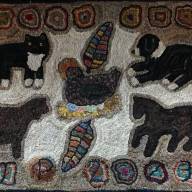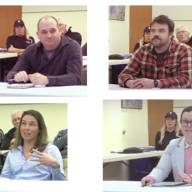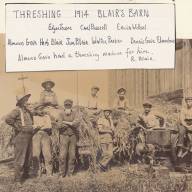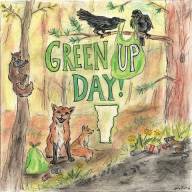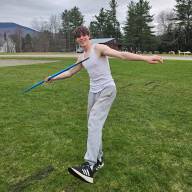On Sunday, July 28, the Mad River Valley Anti-Racism Initiative (MRVARI) gathered at the Village Meeting House in Waitsfield. The monthly discussion group – which is highly informal and open to all – has been meeting for six years.
Facilitator Wrenn Compere, Waitsfield, and board-certified music therapist, said the purpose of the group is to investigate forms of systemic racism and methods of combatting oppression. She draws on selections from literature, excerpts of documentary films, and other materials for participants to explore through an anti-racist lens.
While some materials explore the experiences of people of color – like selections from “Between the World and Me” by Ta-Nehisi Coats (2015), others investigate the privilege and violence of whiteness – like selections from “Check Your Privilege: Live into the Work,” written by five social activists (2020).
The group is not a book club, but rather a space where participants can share in a reflective, questioning, open-ended way.
MRVARI grew out of a two-part community discussion series about anti-racism hosted by Waitsfield United Church of Christ and the Waitsfield Memorial Library in 2018. Organizers brought a facilitator in from the Burlington-based Peace and Justice Center and Compere was initially a participant. She was seeking a deeper education on anti-racist movements and lenses.
Compere has been interested in examining how power operates for a long time. She studied feminist theory and gender politics in college, then took additional coursework on power, oppression and privilege while earning a master’s degree in music therapy in 2008. “I thought I was aware of injustice in the world, and I realized there were many things I was still blind to – mostly with my own privilege,” she said.
On Sunday, she read a poem by American author Frederick Joseph, who writes about racism and social injustice for young adults. The group also discussed the notion of intersectionality, which recognizes how individuals can hold multiple identities and face challenges at the intersection of those identities – such as someone who experiences discrimination based on both race and gender. The term was first coined in 1989 by American scholar and civil rights activist Kimberlé Crenshaw.
“For white folks to be talking about these topics, it can be uncomfortable business. It goes against the grain,” Compere said. “I can closely fixate on my own pain and discomfort, but then I have to push beyond that.”
One of the agreements that Compere establishes with participants as they join, in addition to vowing confidentiality and accepting that closure may not come with group discussions, is to be willing to experience discomfort.
Waitsfield resident Pat Folsom said she started attending MRVARI since the group initially formed because she, as a white woman, wanted to learn more about the experiences of people of color in the United States – that “I was trying to do some personal growth,” she explained.
Specifically, Folsom said that attending the group led her to pay closer attention to how fatal police violence is disproportionately affecting people of color in the United States.
“I recommend to anyone who wants to learn more, or be challenged, or to open their mind more, to come and join us,” she said about the group. The next meeting will be held on August 25.





